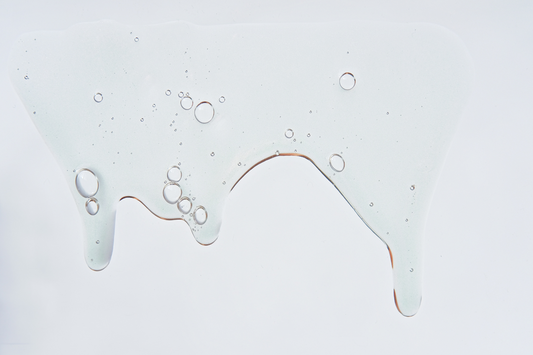If you're struggling with hair thinning, mood swings, fatigue, or irregular cycles, you might be looking in all the wrong places for answers. Shampoo swaps and sleep hacks only go so far when the real issue is happening inside your body.
One of the most overlooked disruptors of women’s health and hair? Sugar.
It’s hiding in everything—coffee creamers, dressings, “healthy” bars—and while a little won’t hurt, daily spikes in blood sugar can quietly wreak havoc on your hormones, your metabolism, and yes… your hair.
Here’s why cutting down on sugar might be the most powerful move you make for your hormonal health:
1. Sugar Spikes Insulin, and Insulin Throws Off Hormones
When you eat sugar or any carbohydrate, your blood sugar rises and your body responds by releasing insulin to help your cells absorb glucose for energy and to lower blood sugar levels back to a healthy range.
If this happens often (and for many of us, it does), your cells start to ignore insulin, leading to insulin resistance. This can trigger a chain reaction: your body produces more and more insulin, which:
- Disrupts ovulation, meaning your body may stop releasing an egg each month, which can make it harder to get pregnant, lead to irregular cycles, and affect your monthly hormone rhythm.
- Increases androgens (like testosterone) which can trigger symptoms like acne, facial hair, oily skin, and hair thinning or hair loss.
- Causes estrogen and progesterone to swing out of balance causing you to experience mood swings, PMS, breast tenderness, and worsening perimenopausal symptoms.
Women with PCOS, perimenopause, or postpartum hormonal shifts are especially sensitive to this.
2. High Insulin Boosts DHT (The Hair Loss Hormone)
Too much insulin activates an enzyme called 5-alpha reductase, which converts testosterone into dihydrotestosterone (DHT). DHT is one of the top culprits behind female pattern hair loss.
So the more sugar you eat, the more insulin you release, and the more DHT you might be producing, silently shrinking your hair follicles.
3. The Sugar Crash Leads to Cortisol Spike
Every sugar spike leads to a crash. And that crash? It sends a message to your brain that something’s wrong causing your adrenal glands to release cortisol, the stress hormone.
So why is this bad? Because chronic cortisol throws off:
- Your thyroid function, which slows down your metabolism, causing weight gain, fatigue, and making it harder for your body to maintain energy and balance other hormones.
- Estrogen metabolism so your body may have trouble breaking down and clearing excess estrogen, which can lead to estrogen dominance and symptoms like bloating, heavy periods, and breast tenderness.
- Your body’s ability to produce or respond to progesterone, which is essential for calming the nervous system, supporting fertility, and balancing estrogen. When it's low, you may feel anxious, struggle to sleep, and experience irregular or painful periods.
This can leave you feeling wired, tired, bloated, and inflamed.
4. Sugar Drives Inflammation
High sugar intake increases inflammatory markers in the body, which can:
- Disrupt hormone signaling, so your body gets the wrong signals or no signal at all. This can throw off everything from ovulation to thyroid function to how well your body burns fat or grows hair.
- Damage healthy cells (including hair follicles)
- Worsen conditions like PMS, endometriosis, and autoimmune thyroid issue
5. Sugar Confuses Leptin (Your Satiety Hormone)
Leptin tells your body when to stop eating and how to burn fat. But with too much sugar, your brain stops listening.
Leptin resistance is tied to:
- Weight gain (especially around the belly)
- Estrogen dominance which leads to symptoms like bloating, heavy periods, and breast tenderness.
- Fertility issues
You don’t have to cut sugar completely—but you do need to be more intentional.
Start with small steps:
- Try cinnamon or vanilla in coffee instead of sweetened creamers
- Choose unsweetened yogurt and add fruit
- Increase fiber and protein at meals to slow glucose spikes
- And most importantly, read your labels. Even "healthy" foods and gummies often sneak in cane sugar, honey, syrup, or fruit juice concentrate.
Reducing sugar is a low-lift, high-impact way to support your hormone health—and reclaim your energy, clarity, and hair from the inside out.
Need a cheat sheet of hormone-friendly foods? We’ve got you covered.
[Download it here.]



